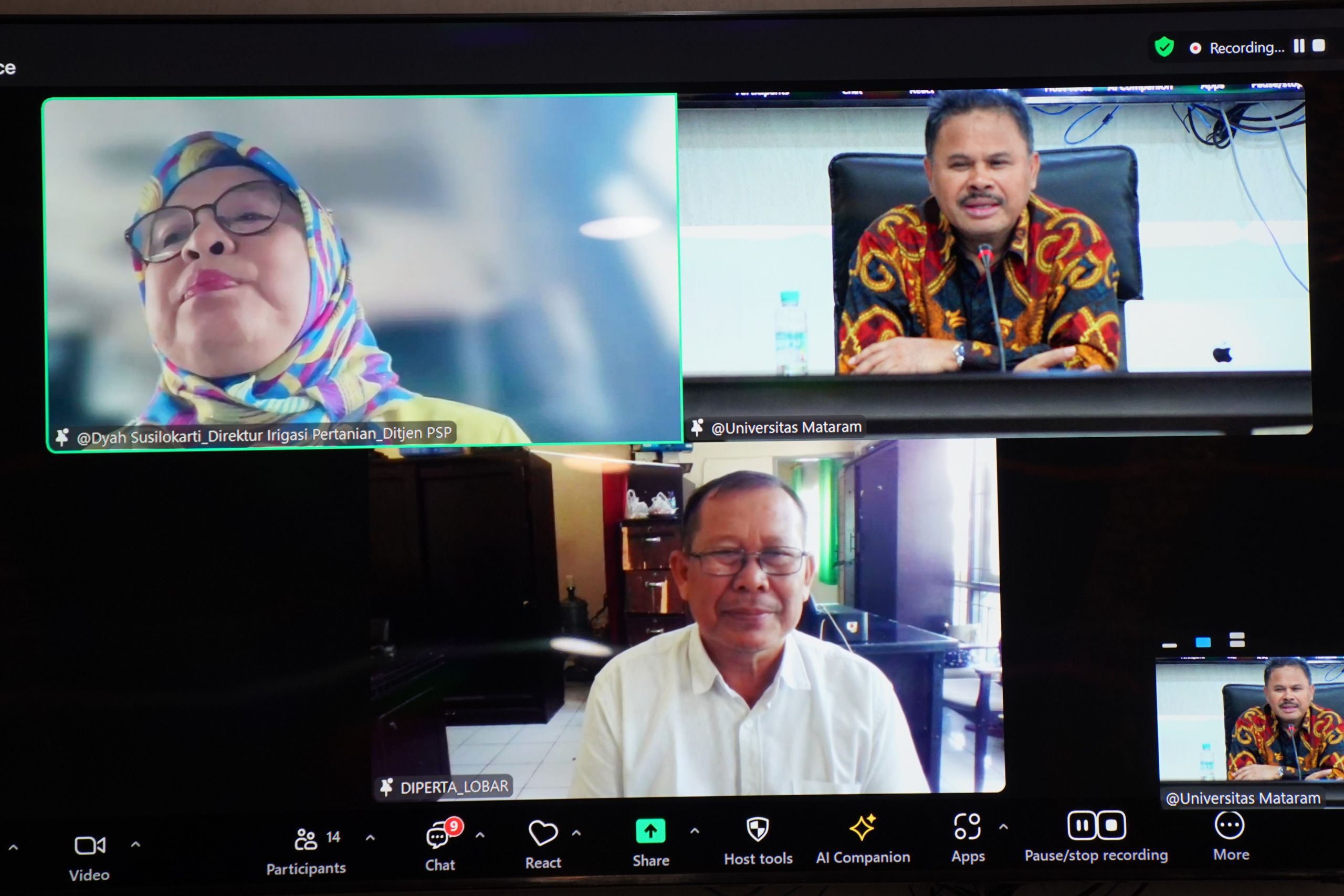Unram Supports Optimization of Dry Land in NTB with Solar Submersible Pump: A New Step for National Food Security

Mataram, University of Mataram – University of Mataram (Unram) supports the implementation of the use of solar-powered submersible pumps on deep groundwater to support national food security through discussions with the Director of Agricultural Irrigation of the Directorate General of Agricultural Infrastructure and Facilities, Dr. Ir, Dyah Susilokarti, M.P. This discussion was held in the Rector’s Conference Room, Unram Rectorate online and offline on Wednesday, August 14, 2024.
This discussion is a follow-up to Unram’s audience regarding the submission of the Indonesian Food Patriot program plan at Unram with the Minister of Agriculture of the Republic of Indonesia which took place on Thursday, May 2, 2024.
The innovation of launching submersible pump technology is the latest initiative to optimize the use of dry land by utilizing solar-powered submersible pump technology which aims to improve national food security through sustainable deep groundwater management.
It is known that drylands in West Nusa Tenggara (NTB) often suffer from water deficiencies due to uncertain rainfall. Therefore, the application of this solar-powered submersible pump allows efficient groundwater extraction without relying on fossil energy sources that are often expensive and not environmentally friendly.
Dr. Ir. Dyah Susilokarti, M.P., Director of Agricultural Irrigation at the Directorate General of Agricultural Infrastructure and Facilities, expressed her appreciation for Unram’s continuous efforts in developing this technology.
“The use of solar-powered submersible pumps is the right solution to overcome irrigation challenges in dryland areas such as NTB. This is a strategic step that not only increases agricultural productivity, but also contributes to national food security,” she said.
Dyah also added that the success of this technology will depend on cooperation between various parties, including the local government, academics, and farmers. “Collaboration like this is very important so that technological innovations can be implemented effectively and efficiently in the field,” she added.
Prof. Ir. Bambang Hari Kusumo, M.Agr.St., Ph.D., as Rector of Unram, explained the difference in land characteristics between Lombok and Sumbawa Island.
“Most of Sumbawa is dry land, and for NTB as a whole, we face challenges due to the lack of surface flow of the river. Therefore, we propose the use of pumps that utilize solar power to pump water from deep underground,” he said.
Then, Prof. Bambang added that this technology allows the utilization of water sources that exist below ground level, without relying on river flow.
“By utilizing energy from sunlight, this submersible pump technology is highly suitable for our conditions in NTB. It also has the potential to help farmers by improving their access to water sources, which in turn will increase crop yields,” he continued.
With this technology, it is hoped that farmers in NTB can increase their yields, especially in lands that were previously unproductive due to limited access to water. This program is also part of the national drive to improve food security, especially in drought-prone areas.
